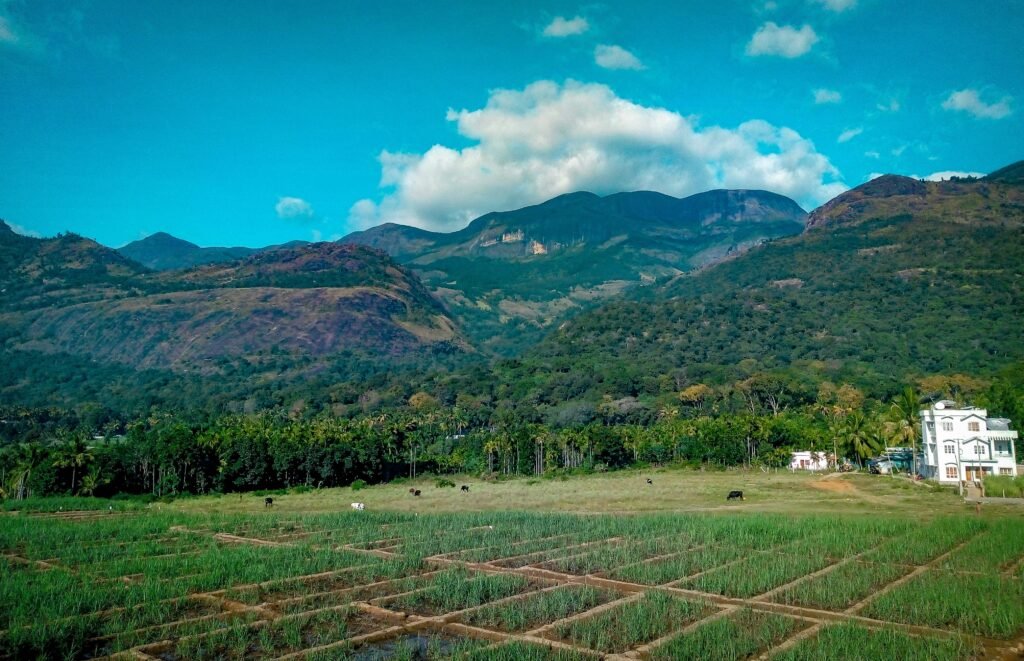🌱 Introduction
The Indian agriculture sector is undergoing a major technological transformation in 2025—and at the center of this revolution is Artificial Intelligence (AI). From predicting weather and crop yield to detecting pests and optimizing irrigation, AI is empowering farmers to make smarter decisions.
But while the potential is vast, AI in Indian agriculture also faces challenges like cost, training, and infrastructure gaps.
Let’s dive into the benefits and challenges of using AI in Indian agriculture and how it is shaping the future of farming in India.
🤖 What is AI in Agriculture?
AI (Artificial Intelligence) in agriculture refers to the use of intelligent machines and software to:
Analyze data
Predict outcomes
Automate tasks
Improve productivity
In India, AI is being used in:
Crop monitoring
Soil analysis
Yield prediction
Farm advisory services
Pest & disease detection
✅ Top Benefits of AI in Indian Agriculture (2025)
🌾 1. Precision Farming & Smart Irrigation
AI systems use sensors and data to monitor:
Soil moisture
Weather conditions
Crop growth stage
➡️ Helps farmers apply just the right amount of water and nutrients.
✅ Result: Better yield, lower input cost, and water conservation.


🐛 2. Early Pest & Disease Detection
Using image recognition and machine learning, AI can:
Scan crop images
Identify signs of diseases
Recommend biological or organic solutions
✅ Result: Reduced pesticide usage and crop loss prevention.
📈 3. Accurate Yield Prediction
AI algorithms process historical and real-time data:
Rainfall
Temperature
Soil condition
➡️ They provide accurate yield forecasts and market predictions.
✅ Result: Better planning for storage, pricing, and supply chain.


📲 4. 24/7 Farmer Advisory through AI Chatbots
Apps like Kisan AI Assistants give voice/text support:
Local language answers to farmer queries
Tips on organic farming, crop rotation, weather alerts
✅ Result: Farmers get real-time help without visiting centers.
🚜 5. Automation of Farming Equipment
AI powers drones and robots to:
Spray organic pesticides
Sow seeds
Harvest crops
✅ Result: Saves labor costs and increases efficiency in large farms.

🚧 Challenges of AI in Indian Agriculture
⚠️ 1. Lack of Digital Infrastructure
Many villages still lack:
High-speed internet
Mobile network stability
Power supply
This limits access to AI tools and services.
⚠️ 2. Low Awareness Among Farmers
Most small and marginal farmers are:
Unaware of AI benefits
Untrained in using AI-powered apps
➡️ Need for training programs in local languages.
⚠️ 3. High Initial Investment
Drones, smart sensors, and AI platforms can be expensive.
➡️ Small-scale farmers find it hard to afford without subsidies or cooperative models.
⚠️ 4. Data Privacy & Localization
AI models rely on collecting farmer and crop data.
➡️ There are concerns about:
Data misuse
Lack of regional data sets
Biased results due to imported models
🧾 Government Initiatives Supporting AI in 2025
| Initiative | Purpose |
|---|---|
| Digital Agriculture Mission | Promote AI, IoT, and big data in farming |
| Agristack Project | Centralized farmer database |
| ICAR-AI Research | Government-backed AI innovation |
| Startup India + AgriTech | Boost AI-based agri startups |
🌿 Real-World Use Cases in India
Niti Aayog + Microsoft: AI to monitor crop patterns and pest control in Andhra Pradesh
CropIn: Predictive analytics for 200+ agribusinesses
DeHaat & AgNext: AI-driven solutions for supply chain and quality grading
📊 Future Outlook: AI + Farmer = Growth
AI-powered organic farming, climate-smart agriculture, and remote farm monitoring will define the next 5 years of Indian agriculture.
With improved mobile access, regional AI tools, and training, even small & marginal farmers will benefit.
📝 Conclusion
AI in Indian agriculture is more than just a trend—it’s a necessity in 2025. While challenges like infrastructure and awareness remain, the benefits far outweigh the barriers.
By adopting AI, farmers can:
✅ Grow more with fewer inputs
✅ Reduce losses from pests and climate
✅ Access real-time advice
✅ Plan their sales better
The future of Indian agriculture is smart, sustainable, and AI-powered.
